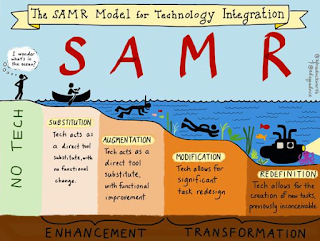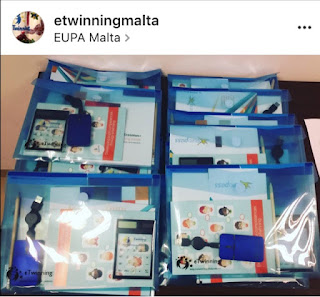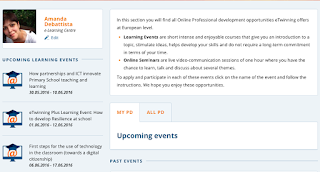I have recently started my Masters Research on Communication, Education and Technology at University of Manchester. One of my first assignments was to watch and write a critique about a 1960's series, The Prisoner.
For those not familiar with this 1960's epic (I was hooked from episode 1!) it is half Truman Show, half The Island, with a bit of conspiracy thrown it. The basic plot is this: an undetermined number of professionals are trapped on an island-prison known as The Village. Although not incarcerated in any traditional sense, the prisoners' lives are controlled in every single minute detail by The General (who in an ironic twist of fate, turns out to be nothing than a super-computer who rules all of the village).
After the first few minutes, it is clear that the villagers are not only manipulated, stripped of their free will; but also victims of the most bizarre mind altering experiments, including what is referred to in Episode 6 as "Speed Learning - A University Degree in 3 minutes!". Every day the villagers are subjected to a 15 second "lecture" where their minds are shamelessly manipulated and data is literally inputted into their brains - and they are able to reproduce every single fact, detail and date with frightening precision. However it is quite obvious from the beginning that they have no idea what their are talking about - the "15 second lectures" are nothing but a brainwashing exercises - and God knows what the "transmitters" put in their brains over and above the simple facts they are supposedly "teaching".
Yes, "teaching...." brainwashing, rote learning, drilling.....
Hands up, those of you born in the 70's, who still remember citing the mathematical tables, from 1-12, every day in class ? The periodical table ? Capitals and countries of the world ? And those who learnt how to write specific words in the infamous "Look and Say" method and not understanding a fig about what that word really did mean ?
 I once had a perfect "Idiot Savant" Autistic child in my Grade 2 class: He could reproduce whole documents from memory, but of course he didn't understand a word of it or why he was compulsively writing them all in the first place...a perfect photographic memory if I ever saw one...But to what intent ?
I once had a perfect "Idiot Savant" Autistic child in my Grade 2 class: He could reproduce whole documents from memory, but of course he didn't understand a word of it or why he was compulsively writing them all in the first place...a perfect photographic memory if I ever saw one...But to what intent ?The truth is, no matter how many super computers are invented, no matter where technology takes us, no matter what study methods we embrace in order to cram as many facts as possible into our already over-stretched brains - none of the above can be classified as learning. To learn is to look for facts with pure curiosity for knowledge, by sifting through the information overload that we are burdened with, to question and to be critical, to look for alternative solutions. To seek, to never be satisfied with one answer, to have an opinion, to make your thoughts become actions.
Because that is what differs us from machines - even the most advanced of computers, are, in fact, stupid. Sure, they can compute, look up millions of articles in a fraction of a second, make the most complicated of calculations....But do they feel ? Do they think, unless we instruct them to ? Do they really do our work instead of us, or just react to what we feed them ?
Maybe what really marks a difference between humans and machines is that humans have free will. I do not for one minute believe in pre-destination. Because that is just another way of saying we cannot go forward, we cannot change things, we would essentially be stuck. I refuse to believe that that is what we are in this world for - to follow our destiny. In Doc Brown's words at the very end of Back to The Future Part 3 - "Your future isn't written on a piece of paper".
Oh and by the way, do you want to know what happened to the supercomputer in "The Prisoner ?" Went up in smoke...because it couldn't find an answer to a simple three lettered word. "WHY".































